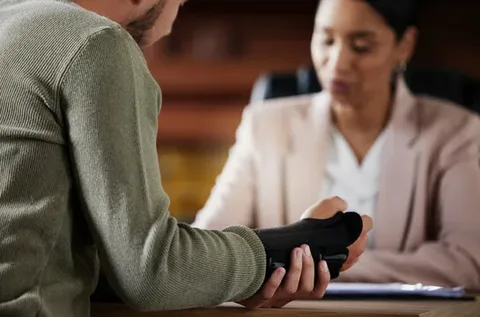Orlando is known for its sunshine, theme parks, and thriving communities, but accidents can happen anywhere, even in the most vibrant of cities. Whether you’re hurt in a car crash on I-4, slip and fall in a local business, or suffer an injury on someone else’s property, you may be left wondering: Who’s at fault?
Understanding who’s liable in a personal injury case is one of the most important steps toward securing the compensation you need to recover and move forward. But determining fault isn’t always simple, especially in Florida’s complex legal environment. Let’s take a closer look at how liability works in Orlando personal injury cases, and why it matters so much to your recovery.
What Does “Liability” Really Mean?
In the simplest terms, liability means legal responsibility. If someone’s actions, or failure to act, caused your injury, they may be held liable for your damages. This could be a driver, a property owner, a business, or even a government entity.
Liability matters because it determines who should pay for your medical expenses, lost wages, emotional distress, and other damages after an accident. Without identifying the liable party, there’s no clear path to getting the support and compensation you need.
Common Scenarios Where Liability Comes Into Play
In a bustling city like Orlando, accidents happen in many forms. Here are a few situations where determining fault is especially important:
-
Car accidents: Was another driver speeding, texting, or ignoring traffic laws? Did poor road conditions or a vehicle defect play a role?
-
Slip and falls: Did a property owner fail to clean up a spill or fix a broken handrail? Were there warning signs to alert you to a hazard?
-
Premises liability: Were you hurt at a hotel, theme park, or store due to unsafe conditions or poor security?
-
Workplace injuries: Was the injury caused by a third party, such as a subcontractor or equipment manufacturer?
Each of these scenarios requires careful investigation to determine exactly who is responsible, and that’s where the right legal guidance becomes invaluable.
Florida’s Comparative Fault Rule: What You Should Know
Florida follows a “modified comparative fault” system. This means that even if you were partially at fault for your own injury, you may still be entitled to compensation, as long as you are not more than 50% responsible.
For example, let’s say you were injured in a car accident, and it’s determined you were 30% at fault because you were distracted. You may still recover 70% of the total damages.
Working with a skilled personal injury attorney in Orlando ensures that fault is assessed fairly and your share of responsibility is minimized, so you can receive the compensation you deserve.
How Is Fault Determined?
Liability isn’t based on assumptions, it’s proven through evidence. An experienced lawyer will conduct a thorough investigation and may use:
-
Accident or police reports
-
Surveillance or dashcam footage
-
Eyewitness statements
-
Expert testimony
-
Medical records and documentation
-
Photos from the scene
In many cases, insurance companies may try to shift blame or downplay their policyholder’s role in the accident. That’s why having strong legal representation is crucial. A good attorney won’t just collect the evidence, they’ll present it in a way that clearly supports your claim.
Why Liability Isn’t Always Clear-Cut
Sometimes, multiple parties share responsibility for an accident. For instance, in a trucking accident, the truck driver, trucking company, and vehicle manufacturer could all be liable. In a slip and fall, both a property manager and maintenance contractor might share blame.
A team like Joya Injury Law understands how to navigate complex liability issues and hold all responsible parties accountable. Their focus isn’t just on proving fault, it’s on making sure you’re protected throughout the process.
What Should You Do If You’re Unsure Who’s Liable?
If you’re injured and unsure who’s at fault, don’t wait. Time matters in personal injury cases, not only because of Florida’s statute of limitations, but because evidence can fade or disappear quickly.
By speaking with a lawyer early on, you’ll gain clarity on your legal options and ensure that no detail goes overlooked. You don’t have to figure everything out alone, and you shouldn’t have to.
Final Thoughts: Find the Truth, Secure Your Future
Accidents are overwhelming, but the path to healing starts with one step: understanding who’s responsible. Knowing who’s liable in a personal injury case empowers you to take action, seek justice, and recover with peace of mind.
If you’ve been hurt in Orlando and need help navigating fault, responsibility, or compensation, don’t wait for the answers to come to you, reach out and take control of your future. With the right support, you’re never alone on the road to recovery.


